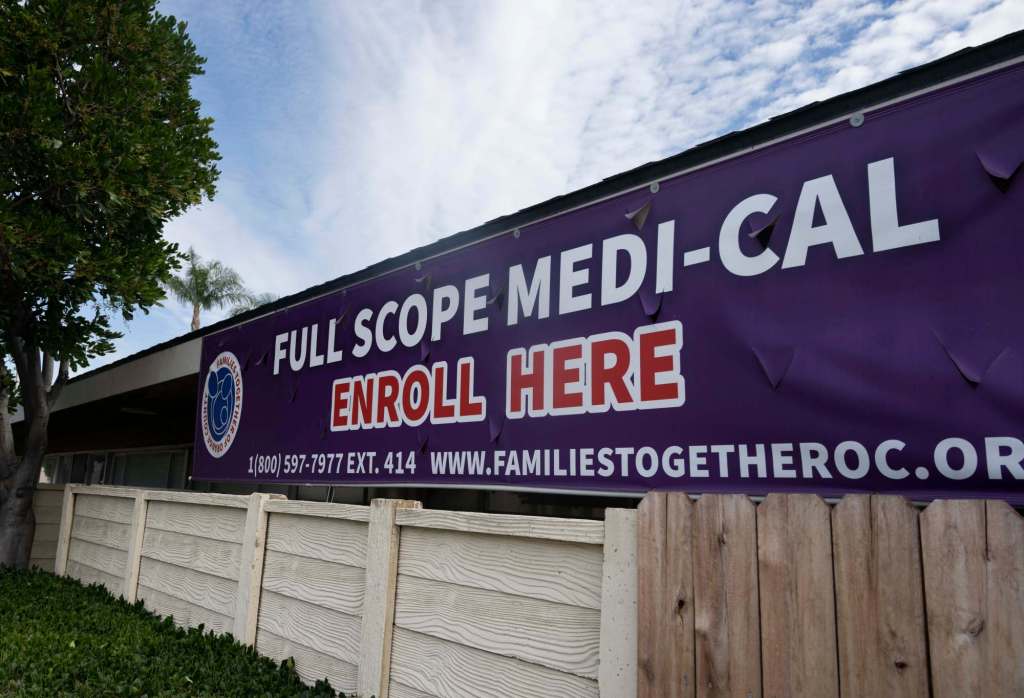
Medicaid is supposed to be a safety net for the poor, but California has turned it into welfare for the wealthy. In California, literally no amount of wealth now disqualifies someone from eligibility. Last year, the state eliminated its asset test for Medicaid, which the state refers to as Medi-Cal.
By scrapping asset limits, the state lets high-net-worth seniors tap its costliest long-term care (LTC) benefits—sticking federal taxpayers with the bill. A new Paragon Health Institute brief, “Medi-Calamity,” exposes this reckless expansion, detailing its fallout and urging reforms to restore both sanity and fairness.
On January 1, 2024, California axed its Medi-Cal asset test—welcoming anyone, rich or poor, onto the rolls. Anyone in California can now be on welfare. Home worth millions of dollars? No problem. An IRA with millions? You are welcome on Medicaid in California.
People with high incomes qualify too, since private health costs, such as nursing home expenses, are deducted before an income limit kicks in. The result? An extra 112,000 enrollees and $1.4 billion in costs, worsened by California’s also extending Medi-Cal to undocumented immigrants.
To fund these excesses, California taxes providers and insurers, leveraging federal matching funds in a budget gimmick, tantamount to money laundering, that skirts rules and pads state priorities. In essence, the state places a pseudo-tax on providers and uses the revenue from the pseudo-tax on those same providers. This unlocks federal funds that the state can use for a variety of purposes including higher payments to those same providers. As money is fungible, this strategy generates federal funds directly to the state general fund. The state can then use these resources to spend on services the federal government would otherwise disallow, such as an expansion of Medicaid for illegal immigrants.
Combined with the irresistible 90% federal match for the expansion population of able-bodied-working-age adults, $1 of money-laundered funds generates $9 of real federal funds. Despite all the increased federal funds, Governor Newsom still faces a $6.2 billion Medi-Cal shortfall because of the state’s profligate spending.
With President Biden’s approval, Medi-Cal morphed from safety net to entitlement, signaling the middle class and wealthy: don’t bother planning for LTC—taxpayers will foot the bill. This moral hazard threatens your wallet and the system’s future. California’s the first state to take this leap; others may follow unless Congress and the Trump administration act to safeguard the program from such abuses.
Medi-Cal’s stingy payments are among the lowest in the country—nursing homes get just 76% of care costs—and lead to long home-care waitlists and subpar quality. Affluent applicants sidestep this, paying privately for top-tier providers who prefer higher rates to offset Medi-Cal’s shortfalls. The poor, lacking such “key money,” get crowded out of decent care.
Meanwhile, Medi-Cal dropped its asset transfer penalties and also crippled estate recovery. If states recovered Medicaid funds expended for taxpayers after the enrollees’ death, there is some disincentive to put one’s elderly relatives on Medicaid for taxpayers to cover their LTC. But, with easy Medicaid access and no estate recovery, California has handed heirs of rich recipients a taxpayer-funded windfall.
The Paragon brief urges action: California must reinstate asset limits, penalize wealth transfers, recover from estates, and close loopholes shielding the rich. But the state will only take these actions if the federal government makes it. Thus, it is crucial that Congress ban asset protection tricks, slash the million-dollar home equity exemption, and refocus Medicaid on the needy—benefitting taxpayers and the poor alike. If these steps reverse Medi-Cal’s folly nationwide, LTC problems will ease. Welfare should not be so easy to access.
With commonsense reforms, people will save, invest, and insure privately, staying off Medicaid. The poor will get a true safety net, while everyone else enjoys better care through private means.
Stephen Moses is a visiting fellow at the Paragon Health Institute, president of the Center for Long-Term Care Reform, and author of “Long-Term Care: The Problem,” “Long-Term Care: The Solution” and “Medicaid’s $100+ Billion Leak.”



